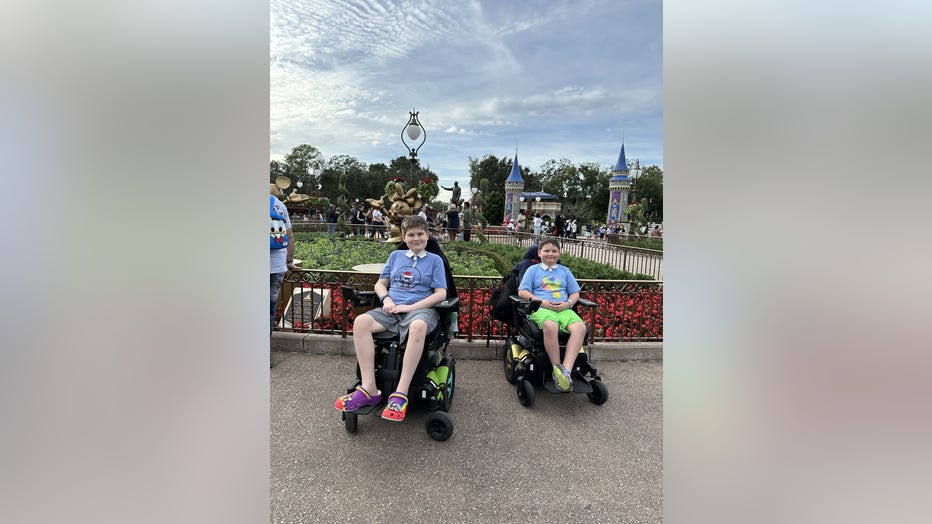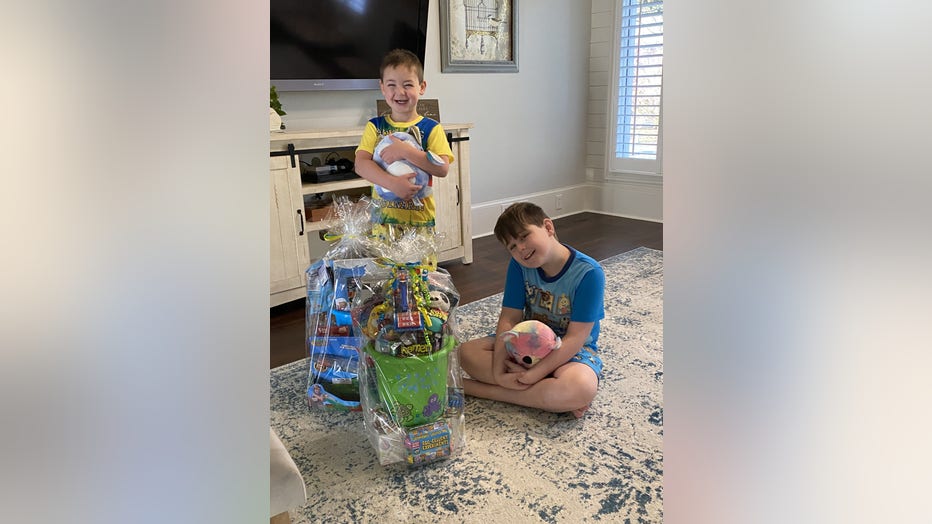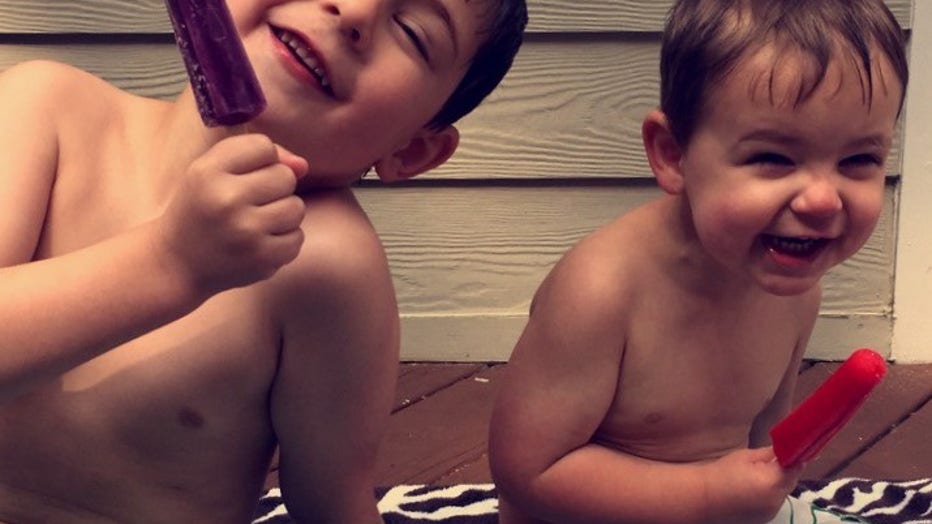Roswell brothers share the same extremely rare, life-altering disease
ROSWELL, Ga. - Mandie and Devin Moore want their 12-year-old Max and 9-year-old Chance, to have the most normal childhood possible.
So, they do a lot with their boys.
"We try to give them as many experiences as possible, and anything they want to do, we try to do it," Mandie Moore says.

Max and Chance Moore, of Roswell are both living with an extremely rare disease known as ROHHAD syndrome. (Moore family photo)
The Roswell brothers are the only siblings in the U.S. and one of only 2 known sibling pairs in the world, to both have an extremely rare disease known as ROHHAD syndrome.
What is ROHHAD? Rapid-onset Obesity with Hypothalamic Dysfunction
Rapid-onset obesity with hypoventilation, hypothalamic dysfunction, autonomic dysregulation (ROHHAD) syndrome is a constellation of symptoms that can be different for each person affected.
Children typically experience a rapid weight gain and a decline in lung function that causes them to need a ventilator to support their breathing.
Max was diagnosed at 10, Chance at 8.
"There's not one symptom that was different," Moore says. "They had, we always say, the same story, different kid."
ROHHAD Syndrome symptoms

Max and Chance Moore, of Roswell are both living with an extremely rare disease known as ROHHAD syndrome.
In 2020, Max, who was then 8, stopped going for family walks through their neighborhood because of fatigue and leg pain.
"He would just say he's really tired," his mother says. "He would say his legs were killing him. He'd have to lay down."
Then, over time, Max, who is on the autism spectrum, also developed gastrointestinal complications, breathing issues, sleep apnea, and problems with his autonomic nervous system, which regulates his balance, body temperature and heart rate.
"Everything seemed to be falling apart or going wrong," Moore says. "We were going to a million doctors, a million specialists. Everybody knew that there was something wrong, but nobody knew what it was."
This went on for nearly two years.

Max and Chance Moore, of Roswell are both living with an extremely rare disease known as ROHHAD syndrome. (Moore family photo)
"It was kind of like whack-a-mole," she says. "Something would present, we would try to get [it] under control, the next thing would present. He started gaining weight. He'd always been a normal weight. In the span of a year, he gained 100 pounds with no change in his diet."
In 2022, Max was diagnosed with ROHHAD syndrome at a clinic that specializes in rare diseases.
When the Moore's read through the list of symptoms, everything lined up, Mandie Moore says.
They came to see Children's Healthcare of Atlanta pediatric pulmonologist Dr. Ajay Kasi.
"We didn't even know about this as a true disease until the last decade," Kasi says. "And even today, there are less than around 300 cases worldwide. So, this is extremely rare."
Being diagnosed with ROHHAD Syndrome
Dr. Kasi pulled together a team of specialists at Children's Healthcare to come up with a treatment plan for Max, and then Chance, when he was diagnosed a few months after his brother.
Children with ROHHAD syndrome typically have low oxygen levels or high carbon dioxide levels, making it difficult for them to regulate their respiration and breathing adequately, not just with exercise, but even when they're at rest, Dr. Kasi says.
"So, during the daytime, they may experience things like being extremely fatigued, napping a lot, or taking really long naps and being very sleepy, having very low energy," Dr. Kasi explains. "That may, in turn, affect their mood and their behavior."
Kasi says there is no known cause of the disease, and, unfortunately, no known cure or treatment for ROHHAD syndrome.
No treatment or cure for ROHHAD
"But, it is supportive treatment, meaning helping them breathe by using a ventilator or breathing machine," he says. "And, they also receive some medicines, called immunoglobulin therapy, which, in some very few cases, has shown benefit in this condition."
Dr. Kasi says treatment appears to be working.
Max has lost the weight he gained.
He and Chase only need their breathing machines at night, or for extra support.
And, Mandie Moore has found a small, but tight-knit Facebook support group for ROHHAD syndrome families.
"It's a huge silver lining," she says. "We all kind of know each other, and know about our kids, and we communicate quite often and share questions."
Still, there is no road map for a disease this rare.
"But, you know, you have to have hope," Moore says. "You have to keep searching. You have to keep fighting. "
And, Mandie Moore says, you have to keep living.
"I think that's a big one: keep living," she says. "It can be hard to do that, but I think that's very important."

